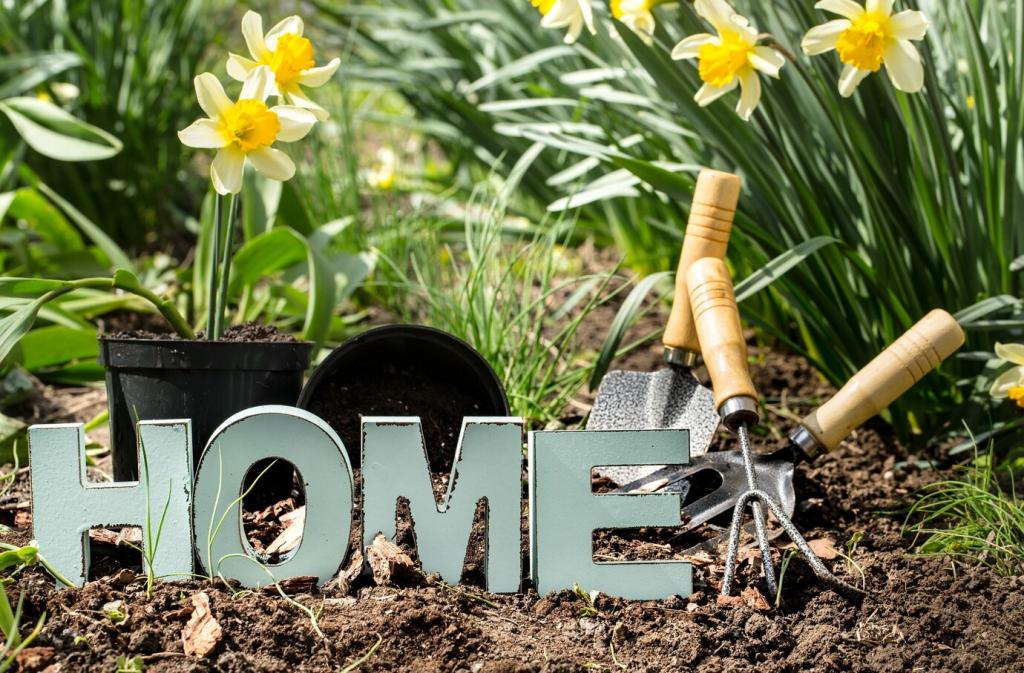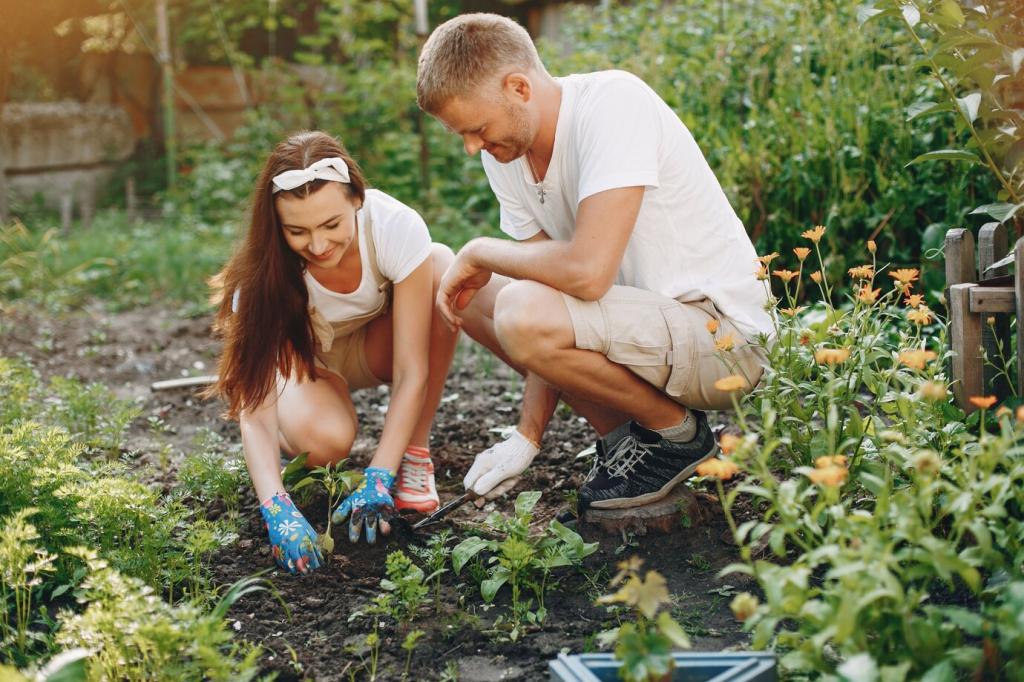Benefits of Urban Gardening for Mental Wellbeing
Urban gardening is more than just a way to beautify cities—it’s a powerful tool for enhancing mental wellbeing. In a world where fast-paced urban lifestyles and technology often create stress and disconnection, cultivating plants in city spaces offers a welcome reprieve. By engaging the senses, fostering community, and nurturing personal growth, urban gardening can bring profound psychological and emotional benefits to individuals of all ages.

Previous
Next
Stress Reduction and Mindfulness
Mindfulness is the practice of present-moment awareness, and gardening naturally cultivates this state. The repetitive motions of planting, watering, and weeding can anchor attention, drawing focus away from persistent worries. As gardeners immerse themselves in each task, thoughts settle, breathing slows, and tension dissipates, leading to a calmer, more grounded mental state.

Nurturing Growth from Seed to Harvest
Witnessing the journey from bare soil to flourishing plants provides a strong sense of progress and achievement. Each stage of growth brings new milestones; sprouting seeds, first blossoms, or a basket of ripe vegetables serve as vivid reminders of effective effort. This process validates patience, persistence, and care, fueling self-esteem and instilling a sense of purpose amidst the often abstract metrics of modern city living.
Overcoming Urban Challenges
Cultivating a garden in the confines of city spaces is not without obstacles. Limited sunlight, space, and pollution present unique hurdles, but surmounting them becomes its own accomplishment. Each adaptation—innovative container planting, vertical gardens, or efficient water use—reinforces creative problem-solving, resilience, and resourcefulness, qualities that translate into other aspects of life.
Enhancing Social Connections and Community
Participating in community gardening projects catalyzes new relationships among neighbors. Working side by side, individuals collaborate, share knowledge, and celebrate successes. These interactions pave the way for trust and understanding, reducing social isolation, dissolving barriers, and empowering even the most introverted participants to feel like valued members of a supportive network.
Gardening as Accessible Exercise
Regular gardening involves digging, planting, carrying, and bending—natural movements that strengthen muscles and encourage flexibility. Unlike structured gym routines, these activities are seamlessly integrated with mental engagement, making exercise feel purposeful and enjoyable. For people of all ages and abilities, urban gardening provides a welcoming way to incorporate more movement into daily routines.
Boosting Energy and Vitality
Physical activity in green environments is associated with improved energy levels and decreased feelings of fatigue. Exposure to natural light while tending a garden supports circadian rhythms, and fresh air revives both body and mind. Over time, the combination of movement, sunlight, and nature’s sights and sounds can significantly enhance overall vitality and reduce urban lethargy.
Relieving Tension Through Focused Activity
Engaging in hands-on gardening provides a constructive outlet for nervous energy and physical discomfort often exacerbated by prolonged screen time or office work. The repetitive, rhythmic actions—such as raking soil or clipping foliage—release built-up tension from muscles, soothe the nervous system, and enable the mind to enter a restorative state.
Nourishing Through Fresh Food and Aromatic Herbs
The Joy of Homegrown Harvests
Planting, nurturing, and ultimately harvesting food in urban gardens is a deeply rewarding experience. Whether it’s a handful of tomatoes from a rooftop garden or herbs snipped from a windowsill, eating what one has grown enhances appreciation and mindfulness around food. This process rekindles a connection to the origins of meals, turning eating into a source of pride and satisfaction.
Improved Diet and Mood
Access to garden-grown fruits, vegetables, and aromatic herbs encourages healthier eating habits, which research links with improved mood and cognitive function. The vitamins and minerals in fresh produce nourish the brain, while flavorful herbs can enhance appetite and culinary creativity. Gardening thus becomes a pathway to both physical and emotional sustenance for urban dwellers.
Culinary Creativity and Relaxation
Growing one’s own herbs and vegetables supplies inspiration for cooking and experimentation, transforming daily routines into creative endeavors. The process of exploring new recipes with freshly harvested ingredients can be meditative, joyful, and stress-relieving. Preparing food straight from the garden allows for mindful engagement, infusing mealtimes with a sense of accomplishment and wellbeing.
Facilitating Creativity and Self-Expression
Every urban gardener becomes a designer, choosing plant colors, arranging containers, and planning layouts. Whether the result is a vertical garden of cascading greens or a patterned array of vibrant blooms, crafting these environments allows for self-expression in ways that transform even the smallest spaces into personal sanctuaries. The creative process stimulates the imagination and provides an outlet for aesthetic exploration often missing in urban life.


Previous slide
Next slide
